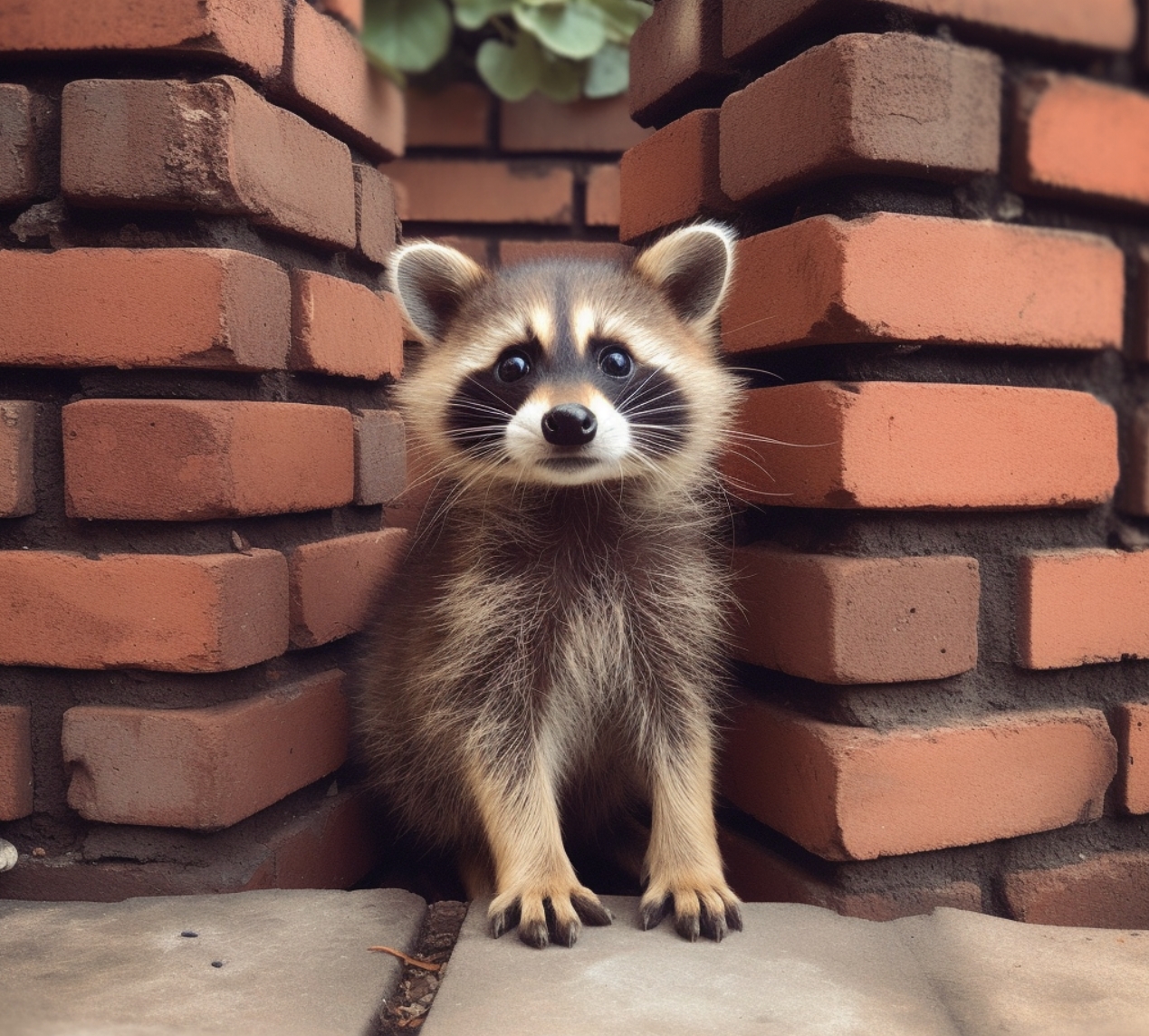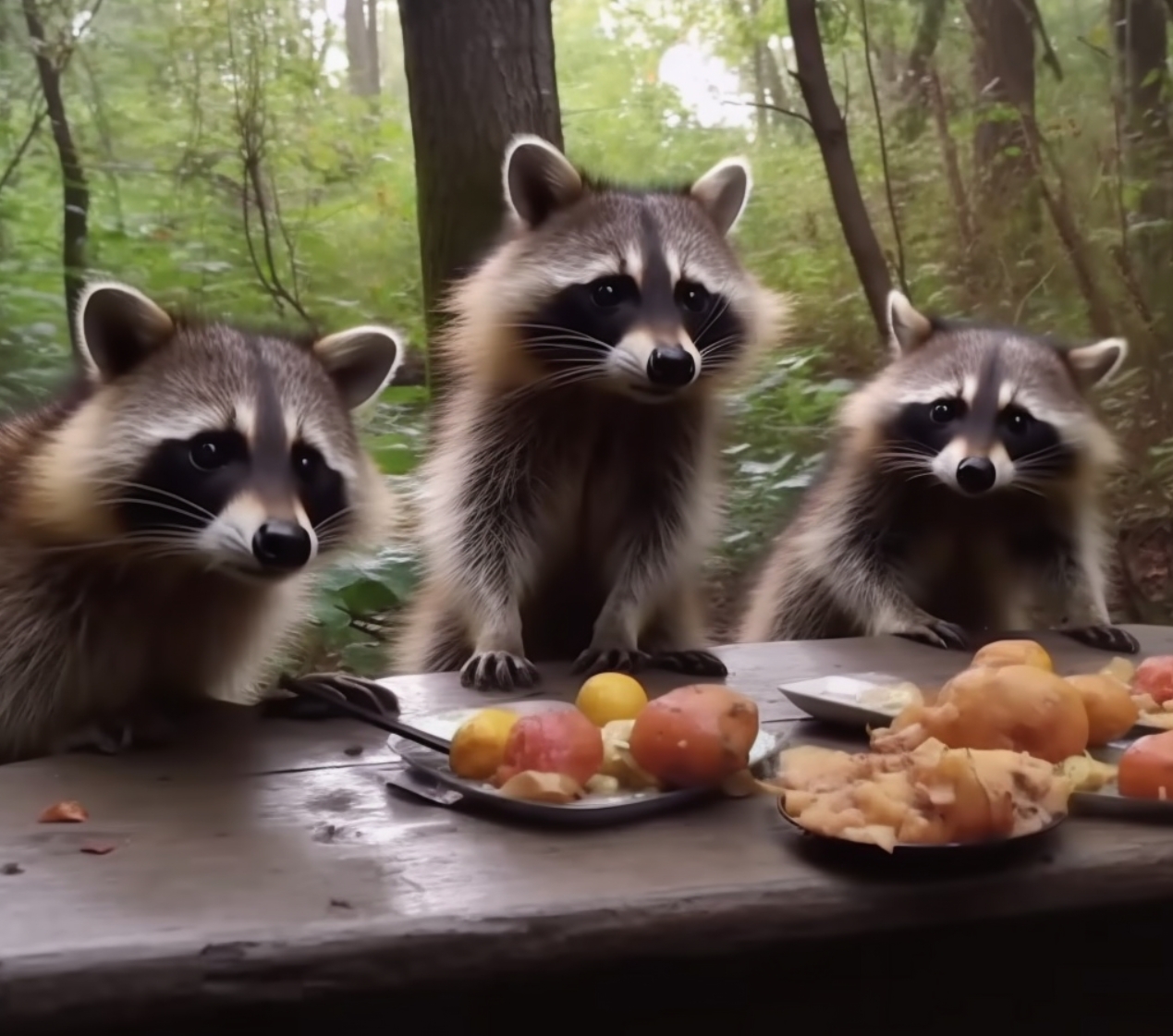Raccoons are fascinating creatures, known for their mischievous behavior and remarkable dexterity. One question that often comes to mind is: Do raccoons have opposable thumbs? In this article, we will explore the answer to this question and delve into the world of raccoons, their unique anatomy, and how their nimble paws allow them to thrive in a variety of environments.
The Enigma of Raccoon Paws
Contents
A Closer Look at Raccoon Anatomy
Raccoons (Procyon lotor) are medium-sized mammals native to North America. They belong to the family Procyonidae and are not rodents, contrary to popular belief. Instead, they are more closely related to bears than rodents. To understand if raccoons have opposable thumbs, we need to first understand their anatomy.
A raccoon’s front paws are more akin to hands than typical animal paws. They have five long, slender fingers with sharp claws. While raccoons do not have true opposable thumbs like humans and primates, their thumbs are more flexible and agile than those of most other animals. This pseudo-opposable thumb allows them to perform intricate tasks that would otherwise be impossible for them.
The Incredible Dexterity of Raccoons
Raccoons are known for their remarkable dexterity, which allows them to accomplish feats that many other animals cannot. For example, raccoons can open trash cans, manipulate latches, and even turn doorknobs. This incredible dexterity can be attributed to their highly sensitive and agile front paws.
According to a study on raccoon behavior, their paws have a high density of nerve endings, making them extremely sensitive to touch. This heightened sensitivity enables raccoons to distinguish between different objects and textures with ease, which is essential for their survival in the wild and urban environments.
Raccoons and Their Ingenious Adaptations

Raccoons in the Wild
In their natural habitat, raccoons rely on their dexterous paws for a variety of tasks, such as climbing trees, catching prey, and foraging for food. They have a varied diet, including fruits, nuts, insects, and small animals. Raccoons are also proficient swimmers and have been known to catch fish and crayfish in rivers and streams.
Their incredible adaptability allows them to thrive in a wide range of environments, from forests to urban settings. However, it’s essential to remember that raccoons are wild animals, and feeding them can be harmful to their health and safety. If you happen to come across raccoons in the wild, it’s best to observe them from a distance.
Raccoons in Urban Settings
Raccoons have adapted exceptionally well to urban environments, where they are infamous for raiding trash cans and wreaking havoc on properties. In these settings, their dexterous paws become even more valuable as they manipulate latches, open containers, and navigate complex human-made structures.
Unfortunately, raccoons can also pose a threat to public health. A significant percentage of raccoons carry rabies, a deadly virus that can be transmitted to humans and other animals through saliva or scratches. It’s crucial to take precautions and avoid direct contact with raccoons, especially if they appear sick or aggressive.
Understanding and Managing Raccoon Behavior
Identifying Raccoon Presence
To effectively manage raccoon presence on your property, it’s essential to
first identify the signs of their activity. Raccoon tracks, droppings, and damage to your property are all telltale signs that raccoons are present. Raccoon tracks can be distinguished from other animals’ prints by their five-fingered hand-like shape. Raccoon droppings, on the other hand, are tubular and similar in appearance to those of a medium-sized dog, but often contain undigested seeds or other food remnants.
If you’re not sure whether raccoons are responsible for the damage on your property, check out this guide on identifying raccoon poop and other signs of their presence.
Deterrents and Humane Solutions
If you’ve determined that raccoons are the culprits behind the damage to your property, it’s time to take action. The key to managing raccoon behavior is to make your property less appealing to them. Start by securing your trash cans with bungee cords or other locking mechanisms. You can also install motion-activated lights and sprinklers, which can help scare away raccoons at night.
In addition, eliminating potential food sources, such as pet food or fallen fruit, will make your property less attractive to raccoons. It’s also crucial to seal any openings in your home, as raccoons are known to make dens in attics and crawlspaces.
If you’re looking for a more hands-on approach to managing raccoons on your property, consider using humane traps. These traps allow you to capture raccoons without causing them harm, so they can be relocated to a more suitable environment. However, it’s essential to check your local laws and regulations before trapping raccoons, as this practice may be prohibited in some areas.
In Conclusion: Do Raccoons Have Opposable Thumbs?
While raccoons do not have true opposable thumbs like humans and primates, their thumbs are more flexible and agile than those of most other animals. This pseudo-opposable thumb, combined with their highly sensitive and dexterous front paws, allows raccoons to accomplish tasks that many other animals cannot.
FAQs about Raccoon Thumbs and Behavior
Q1: Do raccoons have opposable thumbs?
A: While raccoons do not have true opposable thumbs like humans and primates, their thumbs are more flexible and agile than those of most other animals. This pseudo-opposable thumb, combined with their highly sensitive and dexterous front paws, allows raccoons to perform intricate tasks that would be impossible for many other animals.
Q2: Why are raccoons so good at opening trash cans and doors?
A: Raccoons have highly sensitive and dexterous front paws with a pseudo-opposable thumb, which allows them to manipulate objects with incredible precision. Their heightened sense of touch, combined with their intelligence and curiosity, makes them adept at opening trash cans, doors, and other human-made structures.
Q3: Are raccoons dangerous?
A: Raccoons can pose a threat to public health and property. They are known carriers of rabies, a deadly virus that can be transmitted to humans and other animals. Additionally, raccoons can cause significant damage to properties by raiding trash cans, nesting in attics, and damaging structures. It’s essential to take precautions and avoid direct contact with raccoons, especially if they appear sick or aggressive.
Q4: How can I deter raccoons from my property?
A: To deter raccoons from your property, start by securing trash cans with bungee cords or locking mechanisms. Eliminate potential food sources, such as pet food or fallen fruit, and seal any openings in your home. You can also install motion-activated lights and sprinklers, which can help scare away raccoons at night.
Q5: Is it legal to trap raccoons?
A: Laws and regulations regarding trapping raccoons vary depending on your location. In some areas, it may be legal to trap raccoons for the purpose of relocating them to a more suitable environment. However, in other regions, trapping raccoons may be prohibited or require a special permit. It’s essential to check your local laws and regulations before attempting to trap raccoons on your property.
Q6: What do raccoons eat?
A: Raccoons are omnivores and have a varied diet that includes fruits, nuts, insects, and small animals. They are also known to eat fish and crayfish in rivers and streams. In urban settings, raccoons are notorious for raiding trash cans and consuming human food waste. To discourage raccoons from visiting your property, it’s important to secure trash cans and eliminate potential food sources.





